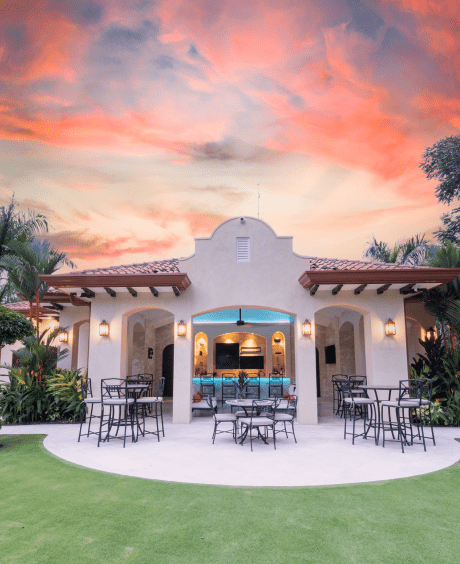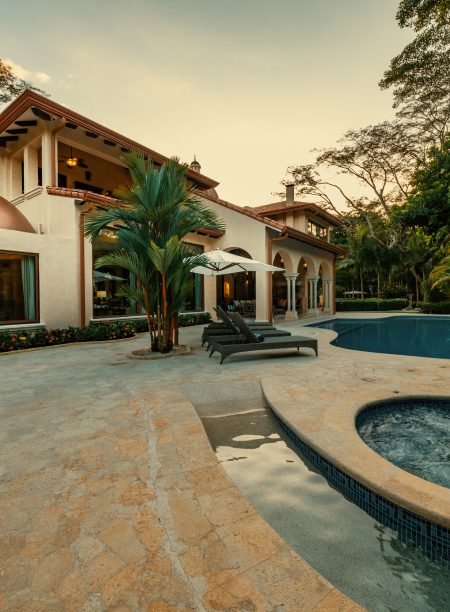Nicoya Peninsula
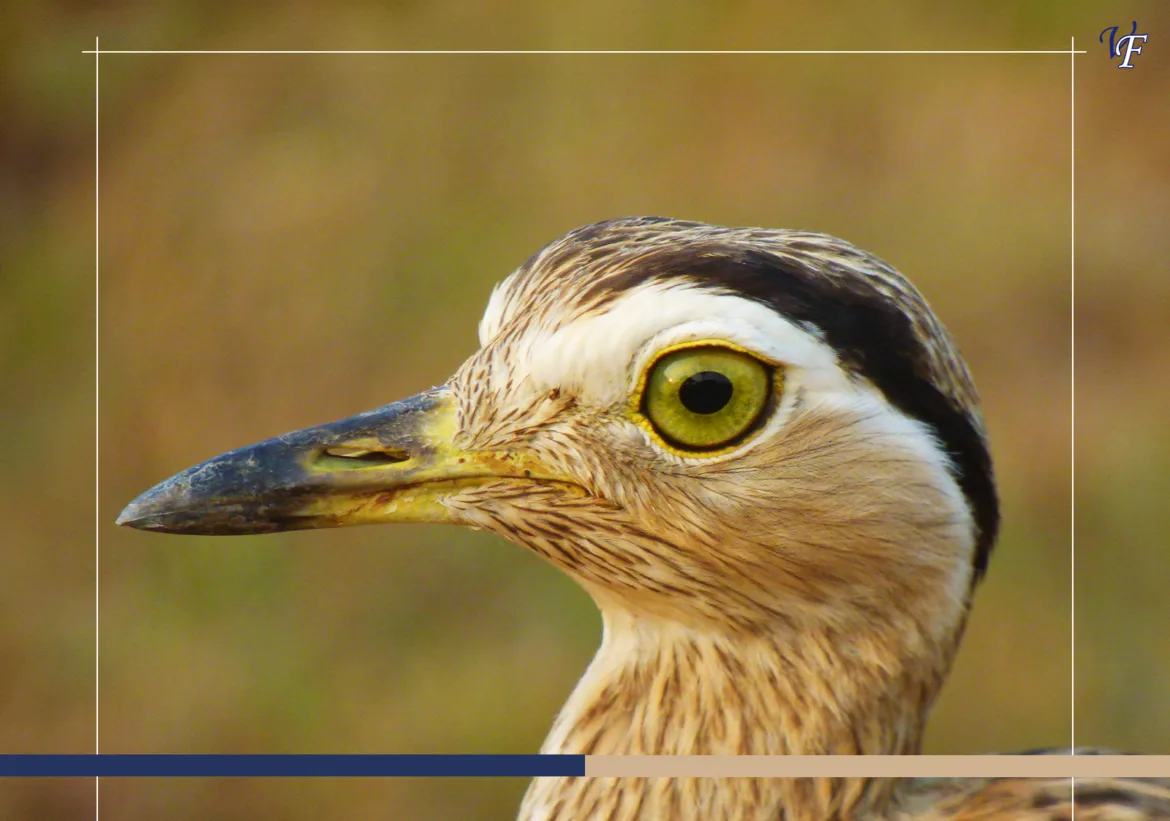
Nicoya in Costa Rica is the epitome of natural beauty and biodiversity. This treasured region on the Pacific coast captivates with its pristine beaches, dense forests, and a vibrant array of wildlife, setting the stage for both adventure and conservation.
The Nicoya Peninsula is home to unique ecosystems, a haven for species ranging from frolicking monkeys to serene sea turtles, offering visitors a chance to immerse themselves in nature’s wonders.
The appeal of Nicoya goes beyond its picturesque landscapes; it embodies the adventure of exploring untouched natural spaces and the significance of preserving them. Whether trekking through lush trails, snorkeling in turquoise waters, or observing wildlife in their natural habitat, Nicoya in Costa Rica invites you to discover its environmental treasures.

Let us explore the best national parks and wildlife reserves in the Nicoya Peninsula.
Cabo Blanco Nature Reserve
Location and Accessibility: Cabo Blanco is situated at the southern tip of the Nicoya Peninsula. It is easily accessible by road from Montezuma and Santa Teresa, making it a perfect day-trip destination for nature enthusiasts.
Flora and Fauna Highlights: This reserve is a sanctuary for diverse wildlife, including white-faced capuchin monkeys, coatis, and over 150 bird species. Its forests blend secondary and primary growth, offering a glimpse into rich biodiversity.
Activities and Attractions: Hiking is a highlight here, with trails leading to secluded beaches and offering panoramic views. The trails are well-marked, guiding visitors through the dense forests to its untouched coastline.
Visitor Tips: The best time to visit Cabo Blanco is the dry season, from December to April, for easier trail navigation. Bring water, comfortable hiking shoes, and binoculars for bird-watching. Start early to enjoy the cooler mornings and to maximize wildlife spotting opportunities.
Curu Wildlife Refuge
Location and Accessibility: Curu is located on the southern Nicoya Peninsula, accessible by road from Paquera or Tambor. It is an excellent stop for those exploring the wider area or seeking a diverse wildlife experience.
Flora and Fauna Highlights: Curu’s ecosystems range from marine zones to mangrove swamps and tropical forests, housing an astonishing variety of animals. Visitors can spot white-tailed deer, howler monkeys, scarlet macaws, and crocodiles.
Activities and Attractions: Guided wildlife tours and water-based activities like snorkeling to nearby Isla Tortuga are popular activities. The refuge has several trails of varying difficulty, suitable for all ages and fitness levels, making it a family-friendly destination.
Visitor Tips: Visit during the early morning or late afternoon for the best wildlife-watching experience. The refuge is open year-round, but the cooler, drier months offer the most comfortable exploring conditions. Don’t forget to pack sunscreen, insect repellent, and a camera to capture the beautiful moments.
Ostional Wildlife Refuge
Location and Accessibility: Ostional is located on the western shores of the Nicoya Peninsula and is famed for its sea turtle arribadas. It’s accessible via the coastal road from Nosara, offering a relatively easy journey for those keen to witness this natural phenomenon.
Flora and Fauna Highlights: The refuge is a critical nesting site for olive ridley sea turtles, which come ashore in large numbers to lay their eggs. It’s also home to various coastal and marine life, including birds, iguanas, and occasionally, leatherback turtles.
Activities and Attractions: Still looking for the answer to the question – why visit Costa Rica? Watching the arribadas during nesting season is one of the main reasons and attractions in Costa Rica. The refuge also offers night tours to see turtles nest under the stars.
Visitor Tips: The best time to witness the arribadas is between July and November. Visitors are advised to use red flashlights (to avoid disturbing the turtles), wear dark clothing, and follow the guidance of local guides to ensure a responsible wildlife viewing experience.
Barra Honda National Park
Location and Accessibility: Barra Honda National Park is known for its unique cave systems. Accessible from the town of Nicoya, the park offers a mix of adventure and natural beauty just a drive away.
Flora and Fauna Highlights: Above ground, the park is home to a dry tropical forest, where you can spot howler monkeys, bats, and birds. Below, its extensive network of limestone caves is a draw for spelunkers and geology enthusiasts, reflecting exactly what Costa Rica is known for.
Activities and Attractions: The main attraction is cave exploration, with guided tours taking visitors into the depths to see stalactites, stalagmites, and ancient marine fossils. Hiking trails and a lookout point offer breathtaking views of the Nicoya Gulf.
Visitor Tips: Cave tours require a reservation and are led by experienced guides. Wear comfortable, sturdy shoes and bring a flashlight. The dry season (December to April) is the best time to visit, offering easier access to trails and caves.
Karen Mogensen Nature Reserve
Location and Accessibility: Karen Mogensen Nature Reserve is a hidden gem in the northeastern Nicoya Peninsula, offering a serene escape into nature. It’s accessible from the town of Jicaral, with guided tours available to ensure you don’t miss its hidden wonders.
Flora and Fauna Highlights: This reserve is a haven for biodiversity, including the elusive puma, ocelots, and diverse bird species like the scarlet macaw and the turquoise-browed motmot. Its lush forests and waterfalls create a vibrant ecosystem.
Activities and Attractions: Hiking to Velo de Novia, a stunning waterfall, is one of the most recommended things to do in Nicoya Peninsula. The trails here wind through pristine forests, leading to breathtaking viewpoints and secluded spots for wildlife observation.
Visitor Tips: Early morning is the best time for wildlife spotting. Calm, relaxed mornings are the most suitable for hiking. Essentials include water, snacks, binoculars for bird-watching, and a swimsuit for a refreshing dip in the waterfall pools.
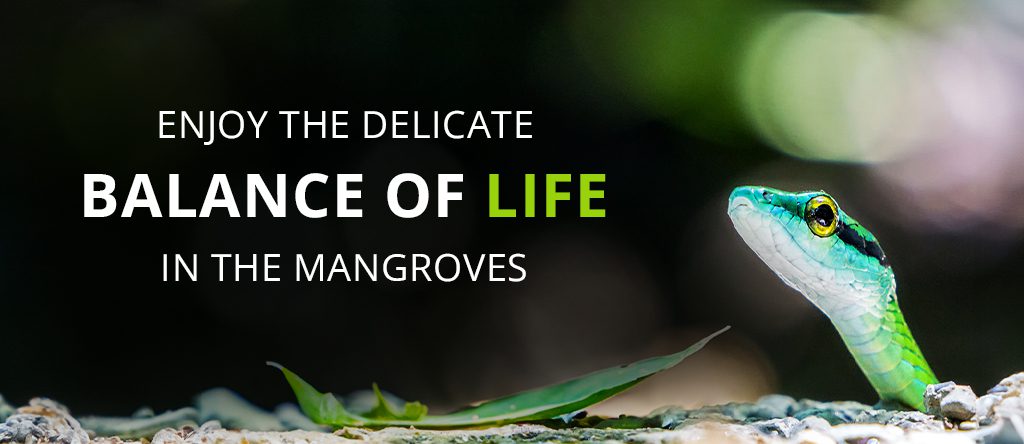
Monte Alto Nature Reserve
Location and Accessibility: Situated close to the town of Hojancha, Monte Alto Nature Reserve offers an easily accessible yet profoundly tranquil experience. It’s a perfect spot for a day trip or a peaceful hike.
Flora and Fauna Highlights: The reserve is home to a rich variety of wildlife, including armadillos, agoutis, and a diverse bird population. Its forests are a mix of secondary growth and reforestation areas, showcasing conservation efforts.
Activities and Attractions: Hiking is the primary activity, with trails leading to panoramic views and the iconic “Mirador,” a viewpoint overlooking the peninsula. The reserve also focuses on environmental education, with guided tours explaining the Costa Rica flora and fauna.
Visitor Tips: Wear comfortable hiking shoes and pack water and snacks for the trails. The cooler months, from November to April, offer the most pleasant climate for exploring. Don’t forget your camera to capture the stunning views and possibly some wildlife encounters.
Enjoy the Virtual Tour of Best National Parks and Wildlife Reserves in the Nicoya Peninsula
Tamarindo Wildlife Refuge
Location and Accessibility: The Tamarindo Wildlife Refuge is strategically situated near the bustling town of Tamarindo, making it an accessible haven for nature lovers looking to experience the raw beauty of the coastal ecosystems.
Flora and Fauna Highlights: This refuge is a sanctuary for an array of wildlife, mainly known for its mangrove forests, which are home to crocodiles, various species of monkeys, and an impressive array of bird species, including the magnificent frigatebird and the roseate spoonbill.
Activities and Attractions: Kayaking through the mangroves offers an intimate glimpse into the vibrant ecosystem, allowing visitors to observe the diverse wildlife quietly. Guided boat tours are also available to learn more about the ecological significance and spot some of the more elusive species from the water. Tamarindo beach in Costa Rica is one of the major attractions, which visitors call their relaxation home, perfect for ending your adventurous day.
Visitor Tips: The dry season, from December to April, is ideal for visiting, as it offers the best conditions for wildlife-watching. Be sure to bring sunscreen, insect repellent, and water. Opting for a guided tour can enhance your visit, providing insights into the ecological balance of the refuge and the conservation efforts in place to protect the environment.
Nosara Biological Reserve
Location and Accessibility: Nestled along the banks of the Nosara River, the Nosara Biological Reserve is a testament to the diverse ecosystems of the Nicoya Peninsula. Accessible from the town of Nosara, this reserve offers a tranquil retreat into nature, just a short distance from some popular beaches nearby.
Flora and Fauna Highlights: The lush landscapes are home to many wildlife, including howler monkeys, iguanas, and tropical birds. Its rich biodiversity is attributed to the convergence of different habitats within the reserve, including mangrove swamps, moist forests, and riverine environments. If you are a nature lover, you can include Nosara in your 5-day Costa Rica itinerary with no doubt in mind.
Activities and Attractions: Birdwatching and nature hikes are the highlights here, with well-marked trails leading visitors through the varied ecosystems. Canoeing along the Nosara River provides a unique perspective of the lush flora and fauna, offering a peaceful way to explore its natural beauty.
Visitor Tips: Morning or late afternoon visits are recommended for the best wildlife-watching opportunities. Wearing comfortable walking shoes, bringing binoculars for bird-watching, and carrying water are essential for a relaxed and rewarding experience. The reserve’s proximity to Nosara’s beaches also makes it an excellent choice for a day of diverse experiences, including jungle exploration and relaxing on the sand.
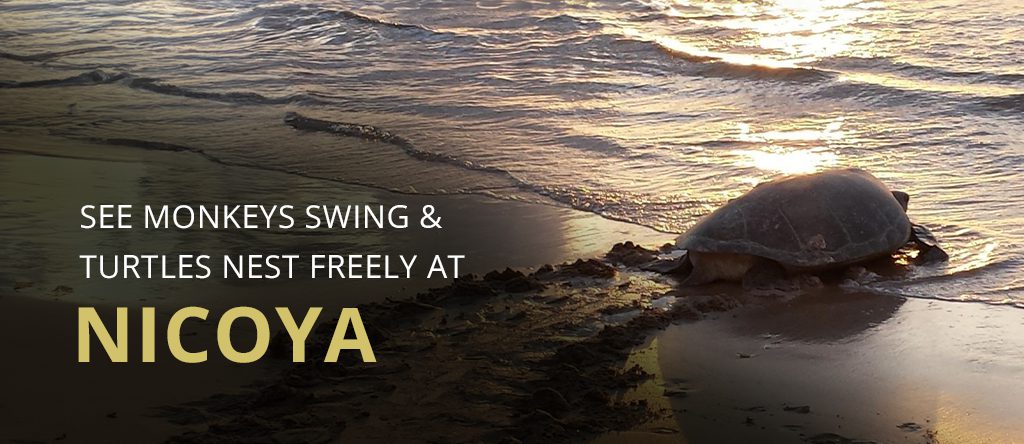
Conclusion
The Nicoya Peninsula is not just a destination; it’s a vivid illustration of Costa Rica’s commitment to nature and conservation.
Travelers play a crucial role in preserving Nicoya’s beauty for generations to come by choosing to visit these natural wonders with mindfulness and respect.
Renting a villa in Costa Rica near the Nicoya Peninsula offers the perfect blend of comfort and immersion in nature, providing a serene base to responsibly explore the region’s landscapes. This approach not only enhances your travel experience but also supports local conservation efforts.
As you venture into Nicoya’s wild heart, remember that the true essence of travel lies in connecting with and preserving the natural world. Let’s cherish and protect the natural heritage during your Costa Rica tours, ensuring its wonders remain vibrant and intact.








